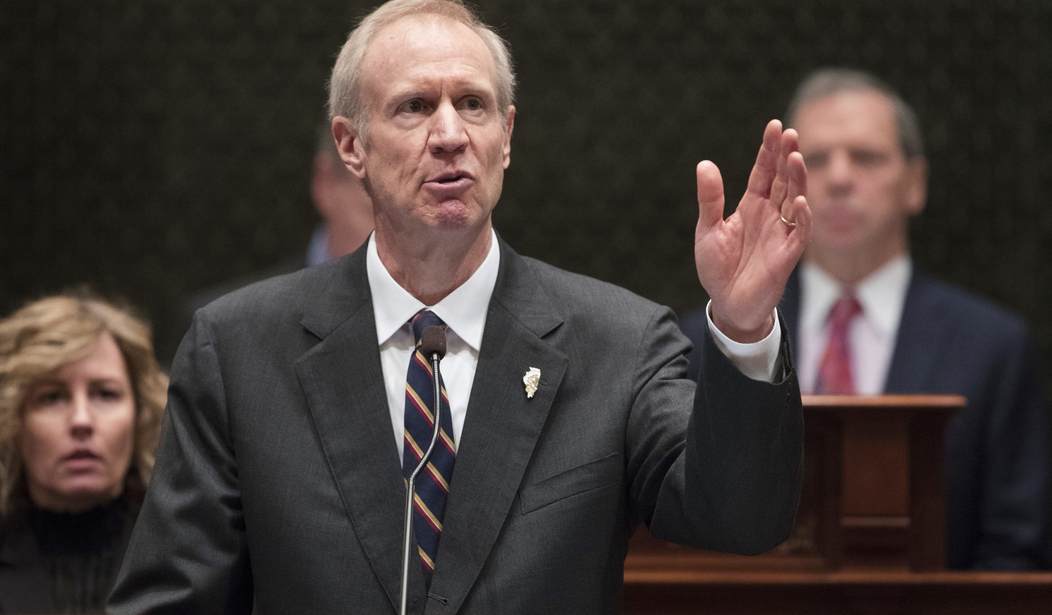Dawn Fitzpatrick, president of the March for Life Chicago board of directors, told PJM the pro-life movement in Illinois had some setbacks in 2017 – most recently, the passage of House Bill 40, which is expected to result in tens of thousands more taxpayer-subsidized abortions.
“It was just devastating,” Fitzpatrick said. “Of course, we are all very upset about that.”
Still, Fitzpatrick described her mood and that of other pro-life advocates as “hopeful” as they prepare for the 2018 March for Life Chicago on Jan. 14. The annual event is expected to draw more than 6,000 people, Fitzpatrick said, which would make it the most massive pro-life rally in the Midwest.
“I think that we will have more people than ever because of (HB 40),” she said, “as we stand in the public square and band together to show we love life and are not afraid to stand up for that.”
The Chicago Sun-Times reported that House Bill 40 makes sure that abortions remain legal and available in Illinois even if the U.S. Supreme Court should overturn Roe v. Wade. The legislation also lets women covered by Medicaid or state-employee insurance to use their coverage to pay for abortions.
A statement from the Thomas More Society, which has sued to block HB 40, said the bill would force the state to pay for abortions through the full nine months of a pregnancy. And the abortion could be performed for any reason “even when the latest scientific research has shown that the unborn child can feel pain and survive outside the womb.”
The society also said Illinois could be forced to pay as much as $30 million for the additional abortions that would have to be covered under the legislation.
Gov. Bruce Rauner (R) promised to veto House Bill 40 in April, which Cardinal Blasé Cupich described as a “principled stand.”
But Rauner signed the legislation in September, prompting many pro-life advocates to say a promise had been broken, which was a charge the governor disputed.
“I am being true to my values and my views. I have always been true to those. … I have to make a decision,” Rauner said in September when he signed House Bill 40. “I have to do what I believe is right for the people of Illinois. And I have to be consistent with my values.”
Rep. Peter Breen (R), who also serves as special counsel to the Thomas More Society, called Rauner’s decision to sign the legislation a “betrayal,” and warned of a “groundswell of opposition.”
The Thomas More Society filed suit to block House Bill 40 in November.
Breen said the Thomas More Society’s objection to the legislation went beyond the “20,000 to 30,000 (additional) abortions per year” that Illinoisans would have to pay for because of House Bill 40.
He said the legislation doesn’t include enough funding to pay for the abortions.
“Regardless of your feelings about abortion, it is incredibly fiscally irresponsible to enact a law designed to spend millions of dollars that Illinois does not have,” Breen added. “The state legislative process has steps that must be correctly followed in order to prevent budget-busting laws like this from being ramrodded through. It is part of our civic process of checks and balances.”
Following a Seventh Judicial Circuit Court hearing during which Judge Jennifer M. Ascher decided the lawsuit could go forward, Breen said his team would wait to see if state officials intend to put HB 40’s directives into effect on Jan. 1.
If it looked like Illinois state agency directors responsible for implementing the legislation were going to move forward next year, Breen said he might request a temporary restraining order and preliminary injunction to stop them.
Breen also said he was hopeful Judge Ascher’s ruling would be “the first step in what we are hopeful and confident will be the successful vindication of the rights of Illinois taxpayers against the misuse of government funds.”
That backlash to HB 40 won’t end in the courts, even if the Thomas More Society’s lawsuit succeeds. Rauner now faces an opponent in the GOP gubernatorial primary, in part because of his signature on HB 40.
Republican state Rep. Jeanne Ives, who also said Rauner had “betrayed” Illinois voters by signing House Bill 40, announced her candidacy Dec. 5.
“If you’re a Republican, he shouldn’t win in 2018, he doesn’t stand for our values,” Ives told WSIL. “(It) doesn’t matter how much money he has, he cannot buy back trust after betrayal.”
Rauner, a week after Ives’ entry in the primary, told a Southern Illinois radio audience that he was “the strongest supporter of candidates who are pro-life.”
“Nobody has worked harder to elect pro-life Republicans,” Rauner added during an interview on WJPF-AM.
“He happened to be on a very popular southern Illinois radio station and of course down there he told everybody he’s pro-life. That’s what you would actually think if you didn’t know the real story,” Rep. David McSweeney (R) told the Chicago Tribune.
McSweeney also said Rauner’s claim that he was pro-life was another sign that the abortion issue “is all about the money again.”
“Do you think he would ever say that to a Planned Parenthood meeting?” McSweeney asked.









Join the conversation as a VIP Member